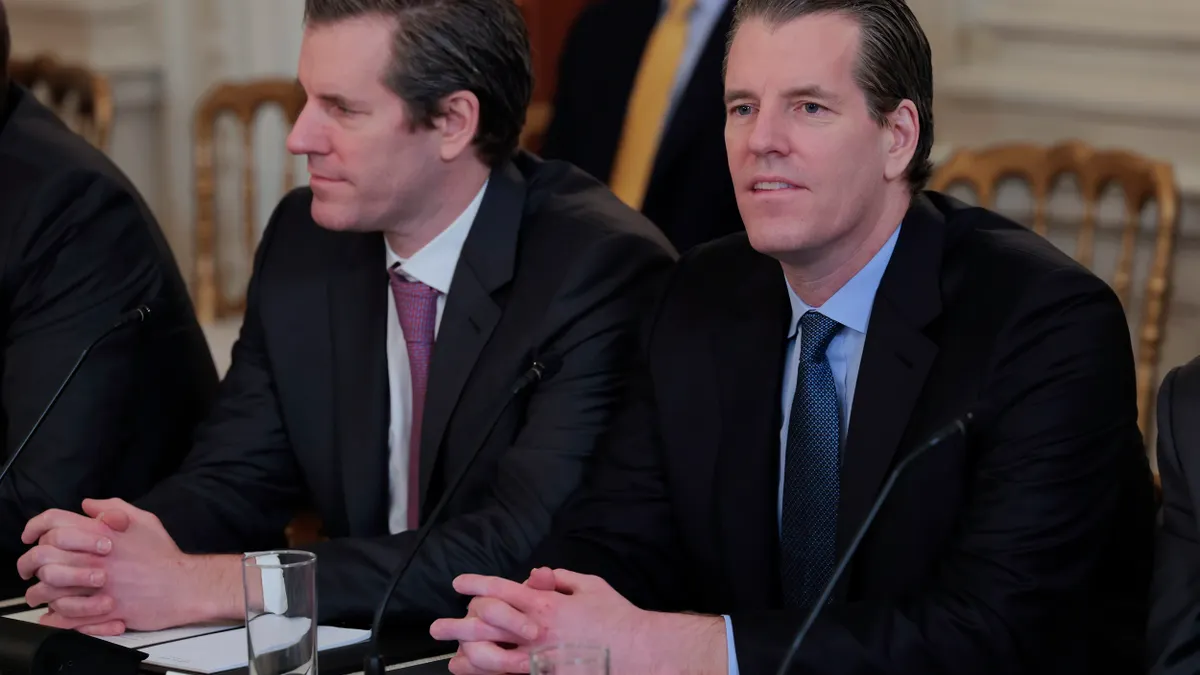As Vice President JD Vance noted Wednesday at the 2025 Bitcoin conference in Las Vegas, cryptocurrency “finally has a champion and an ally in the White House," with the election of President Donald Trump.
Both the president and vice president are large proponents — and owners — of cryptocurrency, and the Trump administration has taken immediate steps to woo cryptocurrency exchanges and related businesses, appointing industry-friendly heads to regulators like the Securities and Exchange Commission and touting plans to create a national stockpile of digital assets, among other initiatives.
Though some have expressed concern over the policies and Trump’s potential conflicts of interest given his business interests in the industry, many are hoping the new spotlight on crypto will help to create more space for it next to traditional currencies — something that requires firm regulatory standards to be put in place. Regulatory clarity is “really foundational,” not just for the cryptocurrency space, but for businesses across any industry, said Dan Chen, CFO of crypto exchange Gemini Trust. The exchange, a major cryptocurrency player, was founded by Cameron and Tyler Winklevoss.
“Regulatory clarity is simply put, an ability for business to know what the rules are and how to remain in compliance with the rules,” Chen told CFO Dive in an interview. “And I think the mode we're in now, where regulators are investing the time to create frameworks that are clear, that are concise and allow businesses to operate, is essential.”
A new regulatory horizon
The need to bring regulatory clarity to the cryptocurrency space — which has long operated on the fringes of the mainstream financial system — has been dogged by persistent murkiness and uncertainty. Crypto exchanges and regulators have repeatedly clashed over how to properly characterize digital assets, over accepted definitions of key terms such as stablecoins — digital assets that are pinned in value to that of a fiat currency, but which lack a widely accepted regulatory definition — and which entity should ultimately hold the responsibility for regulating those assets and industry players.
Among other moves praised by crypto advocates, the Trump administration has taken several steps to ease some of that tension, such as creating a working group focusing on stablecoins. Congress has also recently passed the “Genius Act,” a bill that would create the first regulatory framework for stablecoins, NBC reported. Other regulators have also recently issued new guidance on crypto assets, with the Financial Accounting Standards Board, for example, recently implementing new standards that ask firms to report crypto assets using fair value accounting methods.
“I'm sure a lot of the regulators in the space also prefer having more clear rules, because then they know what policies and procedures they need to enforce and follow,” Chen said.
Like many exchanges, Gemini itself has clashed with the SEC in the past. In 2023, for example, the regulator charged Gemini with selling unregistered securities through its Earn program. This April, the exchange and the SEC asked a federal judge for a pause on the ongoing suit in favor of reaching a potential resolution, Bloomberg reported.
Room to grow
For Gemini, the bigger stage that is opening up for crypto also represents growing opportunity, creating more space for the exchange to cultivate relationships with businesses and individuals that might previously have been wary of utilizing digital assets. One in four (24%) individuals now own cryptocurrency, according to Gemini’s 2025 Global State of Crypto report released earlier this week, compared to one in five (21%) the previous year.
That growth is likely due in part to Trump’s crypto policies, the exchange said, noting its survey results “suggest these policies are inspiring interest in the industry among non-owners — those who have never invested in crypto,” according to a press release. “Understanding and winning over this group will drive significant growth for the industry, which has experienced relatively flat adoption over the past few years.”
Cryptocurrency still has “a lot of room to grow,” Chen said, noting the total value of all crypto currently hovers around $3 trillion, compared to the approximate $60 trillion total value of the U.S. stock market.
Amid changing policies, many businesses are exploring new potential use cases for cryptocurrency — payment players, including PayPal, Mastercard and Payoneer, are now experimenting with stablecoin usage for cross-border payments, for example, CFO Dive sister publication Payments Dive reported.
“There are so many use cases, many of which have not been fully developed, but to me, that's clearly the platform that things will be built upon,” Chen said of digital assets. “And that's really the goal, you skate to where the puck will be, and that's where that future will get built in.”
One of the areas Chen is particularly excited about in regards to Gemini is the company’s credit card business, he said. The exchange offers a credit card product in partnership with Mastercard that enables users to earn Bitcoin on purchases, according to its website.
Such a card is appealing to individuals who are already fully invested in cryptocurrency or digital assets, but also those who are interested, “but they don't know what the right time to invest is,” Chen said. “That's always one of the big riddles.”
It’s a way for individuals to ease into the space “without making a conscious decision to buy at one moment with one large dollar amount,” he said. “And you might look at that and realize the interface is great, the exchange is fantastic, and it's a great tool to get involved with Gemini. So for us, it is not just a side business. It's a part of an ecosystem to build engagement.”
An alum of buy now, pay later company Affirm, where he previously served as VP of capital markets and bank partnerships, Chen joined the crypto exchange as its CFO in March, CFO Dive reported, amid speculation that the exchange had confidentially filed for an initial public offering. Chen’s past experience includes serving as CFO for financial services company Nearside, which was acquired by Plastiq in 2022, as well as a stint as treasurer for Cross River Bank, according to his LinkedIn profile.
“It's really important to me that wherever I go in my career, I move towards an industry that's in high growth, high opportunity, high scaling, because it's frankly, a lot more fun,” Chen said of his decision to move to the Gemini exchange. Chen declined to comment on “market speculation” when asked about a potential IPO.
In his first few months in the CFO role for the exchange, Chen is largely in listening mode.
“I think one of the mistakes I've made earlier in my career is to arrive somewhere and say, ‘what was I really good at before, and how quickly can I deploy that skill set now in my new role?’” Chen said. “And I realize sometimes that's kind of like putting a square peg in a round hole.”






















